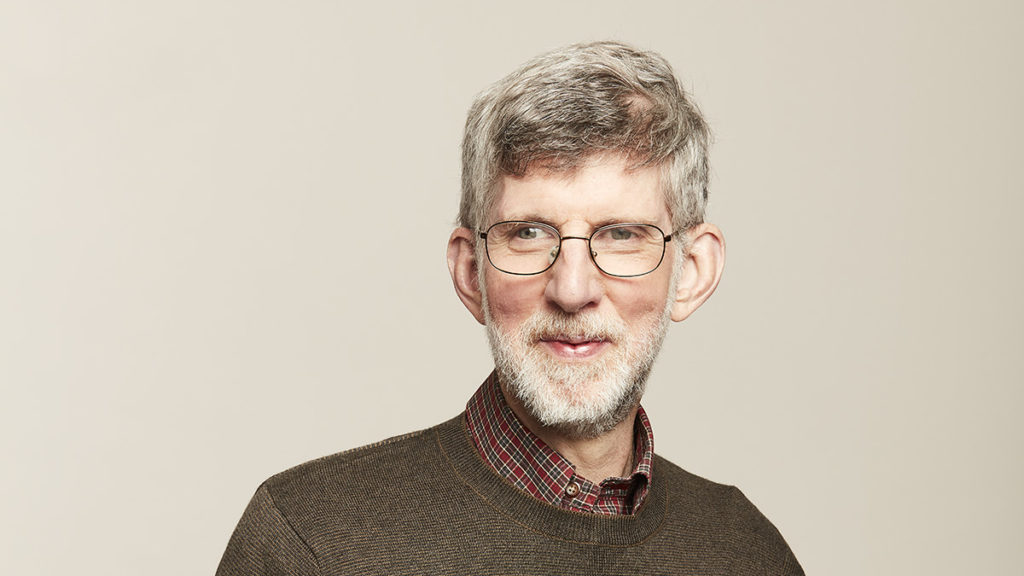Marvin Olasky grew up in a Jewish home, declared himself an atheist at the age of 14, and joined the Communist Party in the early 1970s, about a year after graduating from Yale. But God pursued him and gradually opened his eyes to the lies he believed, and Olasky became a Christian when he was 26.
With that unique background, it should be no surprise that Olasky doesn’t follow the crowd. As editor in chief of WORLD magazine, he strives to write truthful articles from a biblical perspective — not public relations pieces for the church. While WORLD takes a strong stance in cultural areas that have clear biblical guidance, Olasky is proud that at some point nearly every major Christian leader in America has taken issue with something WORLD has reported.
Olasky is the author of over 20 books, including two released this year: “Abortion at the Crossroads” and “Lament for a Father.” He has taught journalism at the University of Texas and the World Journalism Institute, chaired the boards of a private school and a pregnancy resource center, and informally advised then-governor George W. Bush. Olasky and his wife, Susan, have four children and celebrated their 45th anniversary this past Sunday.
1. News headlines often cover tragedies, divisive politics or culture trends that defy biblical teaching. How should Christians respond to “bad news” that often seems to be getting worse?
Bad news is evidence of original sin, so it strengthens rather than undermines the gospel message concerning our desperate need for Christ. Christian journalists should be salt rather than sugar, and that means covering bad as well as good news. But we shouldn’t be fearful: The sky is not falling, because God holds up the sky.
2. How can we build relationships — or even have civil conversations — with people who disagree with us on big topics like theology, abortion, politics or LGBTQ issues?
For civil conversations, ask questions so you can discern why the other person believes what he or she believes. Building relationships might mean initially concentrating on other subjects and prayerfully looking for the right time to bring up harder things. But we’re not honoring God if we avoid them perpetually.
3. In WORLD you often profile poverty-fighting ministries, but issues of poverty and compassion can be complicated. How would you describe a Christian’s responsibility and role in helping others in need, and how can we do that well?
We should be generous in offering compassion that is challenging, personal and spiritual. Governmental poverty-fighting tends to be entitling, impersonal and bureaucratic. So, we should first deal with immediate needs: food, medicine. Second, since we’re all made in the image of God the Creator, we are all capable of being creative, so we should offer the opportunity to work to the fullest of each person’s capabilities. When we don’t require work of some kind, we’re infantilizing the poor.
4. You have quite a list of accomplishments. How do you pursue humility?
Not hard for a person with a lifetime Little League batting average of .182. Right now it’s important to remember that I’m a little hobbit in a big world — and I’m blessed to have people in my life who are willing and able to disagree with me.
5. In a recent WORLD column, you paraphrased a philosopher as saying that “we live our lives forward but understand them backward.” How can we confidently seek God’s will when the path seems unclear?
We don’t know God’s secret will. We pursue obedience to His will as revealed in the Bible. When we gain a good sense of the whole Bible, paths that seemed unclear sometimes become clear. But sometimes we won’t be confident; we should accept that and pray.
BONUS QUESTION: You and Susan have been married for over 40 years. What advice would you offer to those who hope to be married someday?
People meet in all kinds of ways. Remember that you are an unfinished person and you’ll be marrying an unfinished person, so you’ll both be changing. Try to become the kind of person who does not hold grudges. Be quick to listen and slow to speak. Enter marriage with a lifelong vow, take seriously your promise, and pray that God will help you keep it.
Copyright 2021 Lauren Dunn. All rights reserved.












